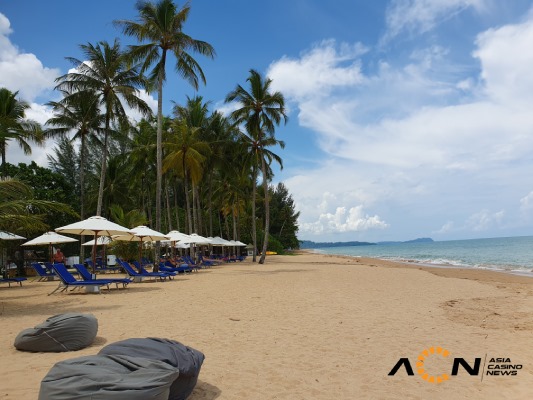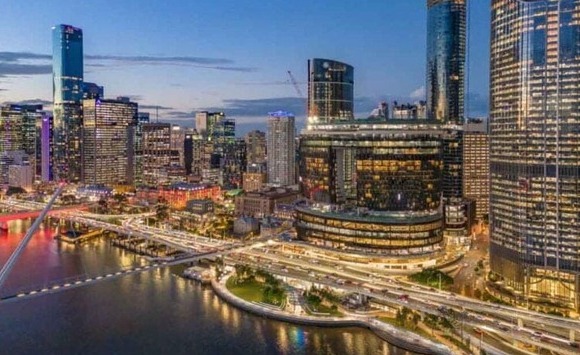
What You Need to Know About Thailand’s plans to become Asia’s next casino hub
Thailand is on the brink of a major transformation as it looks to establish itself as a world-class entertainment and tourism hub, with integrated resorts and legal casinos at the center of its ambitious plans. The government, led by Prime Minister Srettha Thavisin, is pushing forward with legislation that could bring legal gambling to the country for the first time, aiming to attract high-spending tourists and boost the economy.
In April 2024, Prime Minister Thavisin emphasized his government’s commitment to making Thailand a leading global destination for tourists. As part of a broader strategy to generate 3.5 trillion Baht in tourism revenue this year, the government is focusing on building large-scale “entertainment resorts” that will include casinos, among other attractions. These integrated resorts are expected to elevate Thailand’s status as a world-class event hub and draw in a more affluent tourist demographic who are likely to stay longer and spend more.
The proposed framework for these entertainment complexes includes issuing up to five initial licenses, each requiring a minimum investment of 100 billion Baht (approximately $2.8 billion) with a 20-year term. The gaming tax rate is proposed at 17%, and the resorts must be located within 100 kilometers of international airports.
According to Winna Media, potential sites for these large-scale “entertainment resorts” include popular locations such as Pattaya, Phuket, and Chiang Mai. Bang Na, located south of Bangkok, is being considered for an entertainment resort because it already hosts a massive shopping mall, making it a prime area for further development. Similarly, Muang Thong Thani to the north is another potential site due to its existing commercial infrastructure, which includes IMPACT—a major complex with an arena, convention center, two shopping malls, and nearly 1,000 hotel rooms. With more than 10 million visitors annually, Muang Thong Thani offers a well-established base for a large-scale resort and casino.
Thailand has been discussing the legalization of casinos for years, but it wasn’t until recently that concrete steps were taken. In March 2024, the House of Representatives approved a draft Entertainment Complex Bill, setting the stage for what could be a landmark shift in the country’s gaming landscape. The draft regulations, published for public comment and expected to be introduced in Parliament this month, outline how integrated resorts will operate and are set to be reviewed and potentially passed by early 2025.
The initial rules propose 30-year licenses for operators, with evaluations every five years and a maximum renewal period of 10 years. The project will be overseen by a policy committee and an executive committee, both chaired by Prime Minister Thavisin, while day-to-day regulation will fall under a new government body, the Comprehensive Entertainment Commission.
To acquire a license, operators must pay an initial fee of 5 billion Baht ($141.9 million), in addition to a 100,000 Baht application fee. Annual fees are set at 1 billion Baht, and the same amount applies for license renewals. Thai nationals will also be required to pay 5,000 Baht for each entry into a resort casino.
The draft regulations specify that casinos must be part of a broader integrated resort that includes at least four other entertainment businesses, such as restaurants, amusement parks, department stores, hotels, or cultural areas. These resorts must be located in areas designated by a Royal Decree, ensuring they align with the country’s broader tourism and economic goals.
While the vision is clear, challenges remain. Local opposition in potential sites like Phuket and Chiang Mai could slow progress, and the ambitious two-year timeline for the opening of the first casino may be difficult to achieve. Additionally, there is uncertainty about whether Thailand’s regulatory framework will be robust enough to attract top-tier operators from established markets like North America, Singapore, and Australia.
However, there is no shortage of interest from potential applicants, including leading Thai business groups and high-profile international operators, who see Thailand’s market as a promising opportunity. Some analysts even suggest that Thailand could surpass Singapore in gross gaming revenue, positioning itself as a major player in the Asian casino industry.
Read related article: Thailand Moves to Legalize Casinos; Releases Draft Casino Bill
Other Interesting Articles
 Three “shareholders” of Raided POGO Claim to be Victims of Identity Theft
Three “shareholders” of Raided POGO Claim to be Victims of Identity TheftAug 12, 2024











